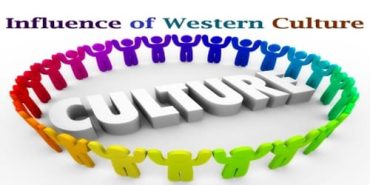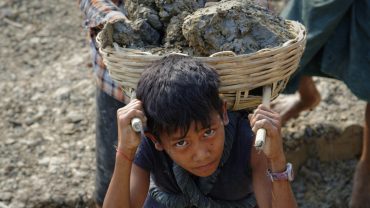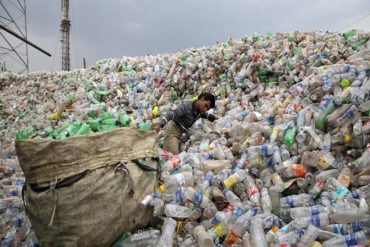Long essay in English of more than 300 words.
Our affinity or attachment to western culture began a long time ago, in the 19th Century, when India was a colony of Britain. At that time, British culture and civilization was considered to be the most sophisticated in the world. Our administrative, education, judicial etc systems were formed and built in the mould of their counterparts in the western world.
Though India can boast of one of the richest cultures, histories and civilizations in the world, the British rule had a profound effect on the minds of the citizens! Two hundred years of British rule not only ingrained a sense of subjugation but also inculcated a reverence for all things western.
Westernization has brought in some positive changes in the Indian society, such as, –
- Development of values such as egalitarianism and secularism
- Abolition of evil practices like Sati, untouchability, caste system, child marriage etc
- Formation of the pillars of society – administration, judiciary, education, press etc
- Education for women and abolition of purdah
Westernization has also affected our social and personal values. Western culture has directly affected our social structure. In today’s India, the joint family system is almost extinct while it used to be the only way of life once. Relationships between members of the same family have undergone changes. Tastes in food, clothing, type of entertainment etc is immensely affected by westernization.
In this age of globalization, it is highly debatable whether the changes brought about by westernization are good or bad in the long run. The bigger question is – are we forgetting our own roots and merely imitating the western world? If so, then our society is neck-deep in trouble! We should extract out only the good from other cultures along with being rooted the goods of our own culture.
Forest conservation refers to the maintenance of forested areas as well as to the act of planting more trees. Forest conservation benefits future generations in manifold ways. Let us find out why!
Forests are an integral part of the eco-system. They shelter wildlife. They regulate weather conditions. They provide over 5000 different types of raw materials used for industries. Forests are the lungs of the world. Conserving forests is of utmost importance.
In the prehistoric age, about two-fifth of the land area of the earth was covered with natural forests. But with time, forests have been overly exploited for commercial purposes. The destruction has increased after the industrial revolution, depleting forest cover more and more. This has led to numerous adverse effects on our planet and the eco-system –
- Increase in global temperature
- Less rainfall
- Increase in soil erosion
- Increase in frequency and volume of floods
- Unavailability of numerous important forest products
- Extinction of certain animal and plant species
- Ecological imbalance
The methods of forest conservation –
- There is no denying that trees need to be felled for commercial purposes. But, this need to be done in a planned and regulated manner. Unnecessary cutting of trees need to be avoided completely.
- Forest fires need to be prevented.
- Planting more and more trees is a practice that is inevitable to the conservation and maintenance of forest cover.
- Much of the forest cover of this earth has been depleted to make way for agricultural land. Shifting cultivation practiced by some tribal communities harms this ecological balance. Such practices need to be stopped.
- Forests and forest products have been utilised commercially for centuries. But the practices have not always been sustainable. Timbre procurement itself leads to a lot of wastage. Waste minimization through innovative ways of utilization of all forest products is the only answer.
- Forest tourism needs to be developed and promoted! It is one such way in which forests bring in revenue without having to give up anything.
- There should be more strict laws and acts protecting forests.
According to UNICEF, in the beginning of 2020, around 160 million children world-over were subjected to child labour, with another 9 million in cue due to the risk of the COVID-19 pandemic. In other words, every 1 out 10 children worldwide is subjected to child labour. Child labour is one of the curses of industrial and commercial development.
Children are mostly engaged in work that can have hazardous consequences like physical and mental illness, even death. In many cases, it leads to sexual and economic exploitation, slavery etc. Child labour is an evil that encourages economically deprived children to quit school and refuse healthcare benefits provided by the state, hence restricting them from availing fundamental rights and putting their future at stake.
Major Causes of Child Labour –
- Poverty is the single-most important cause behind this social evil. Children from poor families are forced to give up education when the sole bread winner of the family – mother or father – loses their job or falls prey to some illness. Sometimes a child might be sent to work just to make ends meet.
- Sudden poverty can be caused by natural disasters, pandemics, politically adverse situations etc. This forces families to migrate and get displaced. These people are branded as refugees and they end up without money or jobs. This forces their children to take part in the function of bringing home money.
- Often, during the process of migration, many children also fall prey to trafficking. According to UNICEF, 30 million children live outside their country of birth which increases the risk of child trafficking, sexual exploitation and other hazardous circumstances.
- In many developing and under-developed countries, state sponsored education is not up-to-the-mark, if at all available. This forces poor children, in such countries, to opt for work.
- Most deprived people, world-over, are not even aware of their own rights. They are also not aware of the meanings of concepts like proper work conditions, safe work space, equality, fair play, social protection etc. Thus, they are easily exploited and end up sending their children to work in hazardous circumstances.
Child labour is an evil of the modern world! To protect children all over the world and for humanity’s bright future, we need to come together and try to put an end to child labour.
The invention of plastic has made many functions of our day-to-day life convenient. But in the long run, it has also posed certain grave threats to the earth and ecosystem. Let us first look at the boons of plastic.
- Plastic polymers are much more flexible compared to metals. Hence, plastic can be moulded and shaped in every possible way. This really comes of use in the manufacturing of complex medical devices needing precision geometry, intricate designs and textures.
- Plastic can be easily sterilized. This is also particularly useful in the case of surgical tools made of plastic.
- The substance is lighter than metals making transportation of plastic-made devices easy and their use fatigue-free.
- Some types of plastic are shatter-proof. They are used in the manufacturing of medical equipment, phones etc
- Plastic is much more economical compared to metals.
- Plastic containers and packets make the storage and transportation of food products hygienic.
- Good quality reusable plastic can actually reduce wastage.
Banes of Plastic
- Plastic is non-biodegradable which means that they don’t disintegrate and mix with the soil. They remain in the earth for thousands of years and can create numerous problems for the ecosystem.
- Plastic bags are the leading cause of land pollution as they stay intact in the soil. They also make the soil infertile by releasing chemicals.
- Plastic bags pose the biggest threat to marine life. Marine animals consume polythene bags floating in the ocean along with their food.
- Land animals like cows consume polythene bags which we use to throw garbage.
- Plastic releases toxic chemicals. When humans consume food stored in plastic containers or drink water from plastic bottles we subject ourselves to the possibility of illnesses caused by these chemicals.
- Plastic bags clog our drainage system and sewerage system, especially during the rainy season leading to flood-like scenarios.
Related English Essay: Ban on Polythene Bags
There was never a kid who said that they genuinely enjoyed studying! But our elders always tell us that education is of utmost importance! Have you ever wondered why your parents insist that you never miss school? Is it only because education enables you to earn a living when you grow up? No, this is not all! Education is much more than just literacy! It affects the society in ways deeper than you realize. Let us see how! Education is key to the growth and development of society. These are 9 reasons why –
- Not only does education ensure you a job, in the long run in creates employment opportunities in general.
- Higher education is equivalent to higher paying jobs. Competition is always less as the level of qualification increases.
- Institutional and organized education enables us to develop problem solving skills. It encourages logical thinking, develops common sense which come of great use when one is in critical situations as an adult.
- An educated society means a strong economy.
- Organized education teaches us to exist in a community where we all know the importance of sharing and caring. We learn to take part in community projects that aim towards the betterment of society.
- The process of education not only enables students to know in-depth about various subjects like history, science, culture etc but this knowledge also makes us mature enough to differentiate between right and wrong. It widens our horizons and broadens our thinking. That is why in educated societies the crime rate is low.
- Digital education brings the world close together.
- Education bridges the gap between people. In educated societies there is no discrimination on the basis of caste, religion, status etc
- In a country like India, education of women is of utmost importance. Women empowerment is only possible through education.
Education, in short, creates humans who build an ideal society. This is the biggest advantage of education.
Plastic is one of the leading issues that the world and our environment is facing in the current day. Plastic is non-biodegradable which means that it would never decompose like natural substances and mix with the soil. Thus, a plastic bag, which is an integral part of our daily lives that we use in plenty, will remain on the face of the earth for millions and millions of years. But why should be ban these convenient bags in which we can simply carry everything?
Plastic bags are harmful to our environment, earth and eco-system because –
- They are non-biodegradable.
- They are a leading cause of land pollution as they stay intact in the soil. Moreover, they release chemicals into the soil that makes the latter infertile.
- They are also polluting water and more importantly killing marine life. Marine animals consume polythene bags floating in the ocean along with their food. This leads to death of marine life.
- Even land animals like cows consume polythene bags which we use to throw our everyday garbage. This enters their body and kills them.
- Polythene releases toxic chemicals. Thus when we humans consume food or water stored in plastic, we subject ourselves to the possibility of illnesses caused by these chemicals.
- Polythene bags are often used to throw away garbage from the house. Most of us throw these on the streets. These bags collect and clog our drainage system and sewerage system, especially during the rainy season leading to flood-like scenarios.
A ban of polythene bags is inevitable if we have to save our Mother Earth.
COVID-19 has changed our lives to a huge extent. The education sector – that is, our schools and colleges – have also been affected. Going to school for attending classes is a distant reality now. Online education is the “new normal”.
When the government of India first imposed lockdown, children where very happy and excited as lockdown mean no school – a sudden holiday for an indefinite period of time! Little did we know that the lockdown was going to change the whole way in which schools functioned.
While at one time, not very long ago, children were forbidden from using smartphones and laptops, these things soon became our windows to education. Classes resumed through video conferencing and lessons were taught through videos uploaded by teachers. Homework had to be mailed and study materials downloaded. Examinations became open book assignments!
The system had many boons. Technology helped us maintain social distancing. Reopening regular schools would mean the mixing of hundreds of children on a daily basis. One could not trust them with observing COVID-19 norms like always wearing masks, sanitizing hands from time to time, not mixing each other’s stationary etc. So through education we could keep the virus at bay!
But there were many downsides to this arrangement as well! Schooling imbibes in us a sense of discipline. It grooms us to become smart, educated individuals when we grow up. But online classes is not the same as schooling. Going to school means wearing a fresh uniform every day, meeting teachers and friends, interacting with them, outdoor activities etc. While online classes can spread knowledge, the system can’t groom or discipline children.
While a child cannot escape from paying attention in a regular class, in an online class it is not possible for the teacher to keep an eye on every student. Learning too suffered in this way. We can only hope that the pandemic would soon subside and thousands of children will get the opportunity to go back to school.
You can also read COVID-19 (Coronavirus) Essay in English
Who does not enjoy a juicy burger or a saucy pizza? Give a child a packet of chips or a can of fizzy drink and the child stops bothering the parents! When children do not finish the roti-subzi of their tiffin, instant noodles is the easiest solution!
Though junk food might be an easy solution to numerous problems, it may be breaking down the health of your child behind your back. This type of food is extremely hazardous to child health and leads to long term medical issues.
Given our current lifestyle, children do not get enough physical activity or outdoor play. Added to that is the huge calorie intake from fast and ready-to-eat food. This is why child obesity is a household problem in our country today.
Junk food might be tasty but they are very low on the nutrient content. Vitamins like A and C, micronutrients or minerals such as magnesium or calcium are simply not present in such food. So regular intake might lead to deficiency diseases in children leading to early onset of medical issues like osteoporosis or dental problems.
Fast food and packaged eatables are rich in added salts and sugars. They are usually rich in carbohydrates and fats, making them extremely high-calorie. This might lead to health issues like obesity, emotional issues and other chronic illnesses. Some latest studies have even shown the relation of junk food with diseases like asthma, rhinitis, eczema etc in kids.
Such foods usually contain a lot of processed items like like processed cheese, processed meat, mayonnaise, sauces etc. They also contain harmful artificial colors, fragrances and flavours. They might also contain chemicals in the form of preservatives. Due to their attractive packaging and marketing techniques, kids become obsessed and habituated to junk food which is a leading cause of health issues in children. They should be encouraged to abstain from it.









Recent Comments